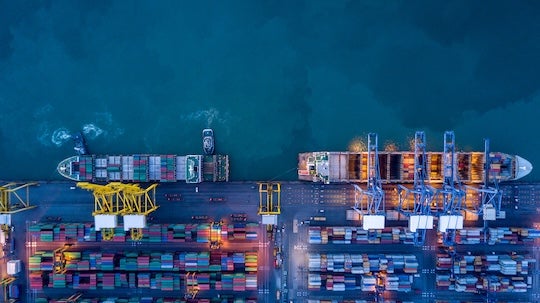As President Donald Trump imposes new tariffs on imports from Canada and China, Rice University offers a cadre of experts ready to provide in-depth analysis on the economic and political implications and multifaceted effects of the new policies.
Earlier today, Trump paused new tariffs on Mexico for one month after Mexico promised to reinforce its northern border. Further negotiations will take place over the next month.
Mark Jones is a professor of political science at Rice and a fellow at Rice’s Baker Institute for Public Policy. His expertise and scholarly work has been widely cited by local, state and national media as well as numerous political campaigns. He said Trump is “engaged in a risky gambit with his executive order implementing tariffs on products.”
“The president’s hardball tactics may very well pay off in the end, but in the short term they are likely to cause potential heartburn for U.S. businesses,” Jones said. “In the medium term, depending on how long they remain in force and the reaction by foreign leaders, they could result in negative economic consequences for many Americans, including higher prices and potential job losses.”
Ken Medlock is the James A. Baker III and Susan G. Baker Fellow in Energy and Resource Economics at the Baker Institute and the senior director of the Center for Energy Studies. He is also the director of the Master of Energy Economics program at Rice.
“Tariffs are generally not good for growth, but the impacts of a tariff are not uniform,” Medlock said. “They depend on the commodity affected as well as the retaliatory measure taken. In short, it can be complicated.”
John Diamond is the Edward A. and Hermena Hancock Kelly Senior Fellow in Public Finance and the director of the Center for Public Finance at the Baker Institute, an adjunct professor of economics at Rice University and CEO of Tax Policy Advisers, LLC. His research interests are federal tax and expenditure policy, state and local public finance, and the construction and simulation of computable general equilibrium models.
"Using tariffs to improve the US trade deficit is a bad idea as it is more likely to make the problem worse rather than better," Diamond said. "While short term and targeted tariffs may make political sense at times, broad based tariffs on all imports are a bad idea."
Tony Payan is the Françoise and Edward Djerejian Fellow for Mexico Studies and the director of the Center for the U.S. and Mexico at the Baker Institute. Payan’s research focuses on border studies, particularly the U.S.-Mexico border. He examines daily life in liminal spaces, cross-border flows — both legal and illegal — and border governance issues. He also explores various topics affecting the U.S.-Mexico relationship.
“Mexico had no choice but to negotiate. With its economy already in dire straits, President Claudia Sheinbaum had to go to the Trump administration and make concessions,” Payan said. “Still, those concessions may not be enough. They serve to kick the can down the road, but the threat of tariffs is not lifted. We may find ourselves in the same position in a month.”
David Gantz is the Will Clayton Fellow in Trade and International Economics at the Baker Institute and the Samuel M. Fegtly Professor Emeritus at the University of Arizona’s James E. Rogers College of Law.
“Actions that reduce trade with our two largest trading partners, accounting for almost $2 trillion annually, are not in the national interest and would conflict with other Trump administration priorities such as increasing investment and simplifying regulatory processes,” Gantz said. “It can be hoped that the Trump administration will soon reconsider the tariffs on Canada and indefinitely postpone those planned for Mexico.”
Roberto Durán-Fernández is a nonresident scholar at the Baker Institute’s Center for the U.S. and Mexico and lectures at the School of Government and Public Transformation at Monterrey Institute of Technology and Higher Education. He is an experienced economist with a background in academia, the private sector and public service. His academic credentials include degrees from the Autonomous Technological Institute of Mexico, the London School of Economics and University of Oxford.
“For businesses and policymakers, this marks a new era of uncertainty, where economic partnerships are dictated as much by political leverage as by market forces,” Fernández said. “The real question isn’t just whether these tariffs will be reversed — it’s what new conditions the U.S. will demand in exchange and how North America will adapt to a future where cooperation is just as critical as competition.”
To schedule an interview, contact Amy McCaig, senior media relations specialist at Rice, at 713-348-6777 or amym@rice.edu or Avery Ruxer Franklin, media relations specialist at Rice, at ar119@rice.edu.

